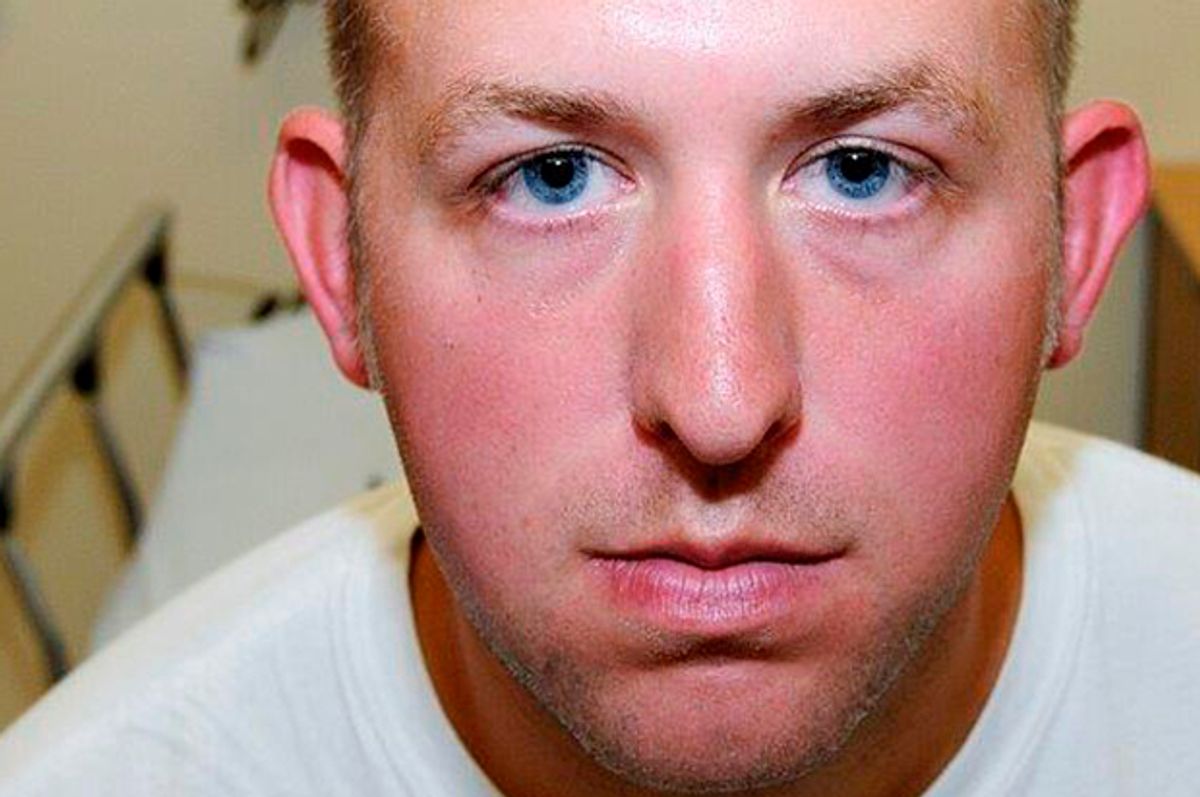Darren Wilson is the subject of a fascinating profile in the New Yorker this week, in which he reveals what his life was like in the days after he shot Michael Brown dead, as well as what his life is like now.
Throughout Jake Halpern's piece, Wilson seems somehow both keenly aware of the racial dynamics of his statements and insensitive to the point of defiance when it comes to the implications of them. For example, when discussing the possibility that members of the black community don't trust police officers because of a legacy of brutality, he quickly dismissed the validity of such claims.
"I am really simple in the way that I look at life," he said. "What happened to my great-grandfather is not happening to me. I can’t base my actions off what happened to him."
"We can’t fix in thirty minutes what happened thirty years ago,” he continued. “We have to fix what’s happening now. That’s my job as a police officer. I’m not going to delve into people’s life-long history and figure out why they’re feeling a certain way, in a certain moment."
By way of explanation, he claimed that "[w]hen a cop shows up, it’s, like, ‘The cops are here!’ There’s no ‘Oh, shit, the white cops are here!’"
"Everyone," he said, "is so quick to jump on race. It's not a race issue."
For Wilson, the issue is poverty -- and a lack of discipline among poor people, the majority of whom just happen to be black. "There's a lack of jobs everywhere," he said, "but there’s also lack of initiative to get a job. You can lead a horse to water, but you can’t make it drink."
He recalled the children of a blind woman who, he said, "ran all over [her]. They didn't respect her, so why would they respect me? They’re so wrapped up in a different culture than—what I’m trying to say is, the right culture, the better one to pick from."
Halpren pressed Wilson, trying to suss out whether "different culture" was "racial code language." Wilson replied that he only meant "pre-gang culture, where you are just running in the streets -- not worried about working in the morning, just worried about your immediate gratification. It is the same younger culture that is everywhere in the inner cities."
Over the course of the piece, Wilson alternately acknowledged that racism was a problem in the Ferguson Police Department and denied the validity of the Justice Department report that proved it, saying "you can make those numbers fit whatever agenda you want."
Wilson said that he's still looking for jobs in law enforcement, but at the moment, no department will hire him. Instead, he lives off the donations that continue to pour in, months after the grand jury refused to indict him.
When asked about his daily routine, Wilson told Halpern that he and his wife still go out to eat, but they “try to go somewhere -- how do I say this correctly? -- with like-minded individuals. You know. Where it’s not a mixing pot.”

Shares